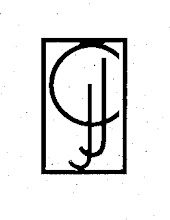The folks had stopped their International Scout along the road out of curiosity. They’d spotted the bear in a field, where it had just been released by wildlife manager Mary McConnell. The bear had been drugged in order to transport her to this habitat and she was still a bit groggy.
“Will it bite?” asked one of the International Scout folks.
“If you corner her,” McConnell replied. She paused, and added, “A mouse will bite if you corner it. Of course, the bear has a bigger bite.”
This little scene is from John McPhee’s “A Textbook Place for Bears” and it makes me want to hug Mary McConnell. “Will it bite?” is the most frequent question I hear when I’m accompanying an animal of any kind. It’s exasperating. Could there be a more foolish question? I will bite you if I think it’s the only way to get you to leave me alone!
Any animal (humans included) with teeth may bite. Even animals without teeth (like geese) may clamp down on you hard enough to hurt. Does that make the animal “bad”?
Yes, if we’re to believe Kevin Renfro, a local personal-injury lawyer.
I’ve nothing against personal-injury lawyers—we all have to make a living. However, I do have a problem when said p-i lawyer goes on television while holding his two adorable dachshunds (they’re GOOD, he says) and tries to reel in new customers: “If you’ve been bitten by a BAD dog, you may need help getting your fair compensation from the insurance company…”
A bite is not a character flaw, Mr. Renfro. A bite is a SIGN—an indication of a health problem, a misinterpretation of circumstances, a territorial act of protection. A bite doesn’t make an animal bad. I would hope that you (and those lawyers who specialize in dog-bite litigation) have some basic knowledge of canine behavior so you’re not perpetuating myths and disseminating misinformation on television and in courts.
Every bite tells a story, Mr. Renfro, and without “hearing” (i.e., understanding) the dog’s point of view, you’re missing the most important element of the tale. If you don’t feel the need to delve deeper into canine behavior for your work, I urge you to do it for those cutie-pie dachshunds of yours. “Good” dogs shouldn’t have to settle for “bad” guardians.





No comments:
Post a Comment